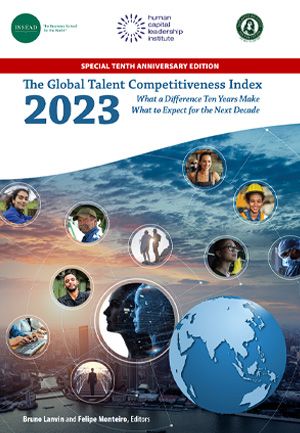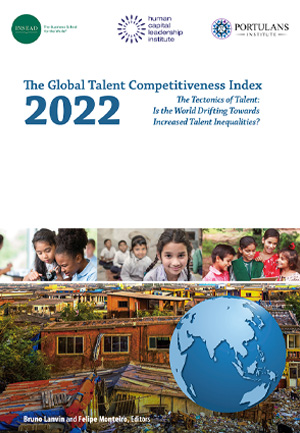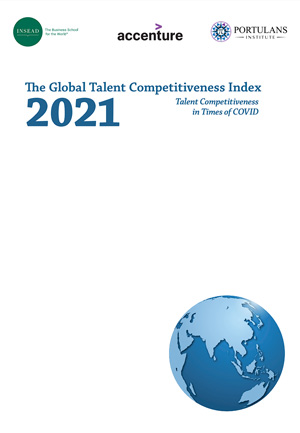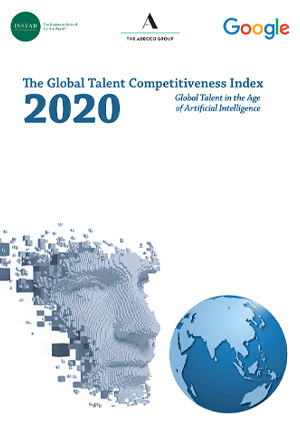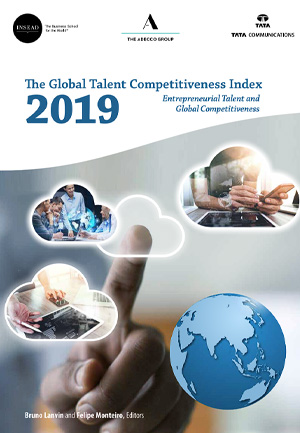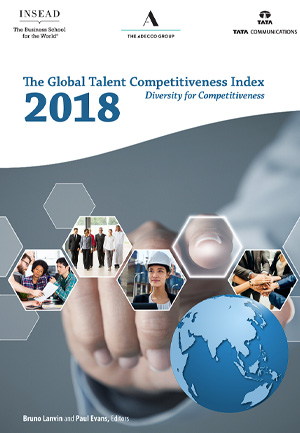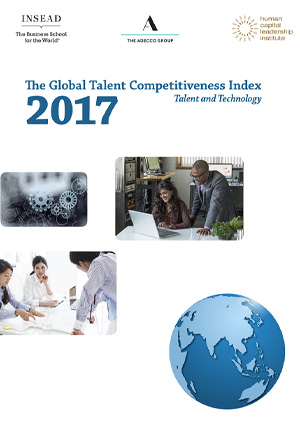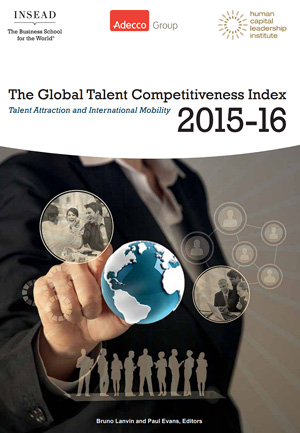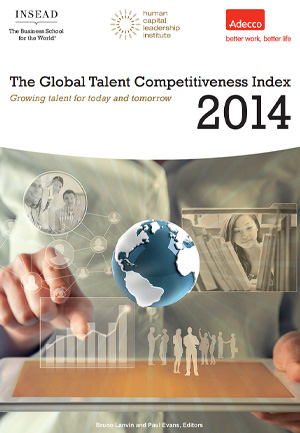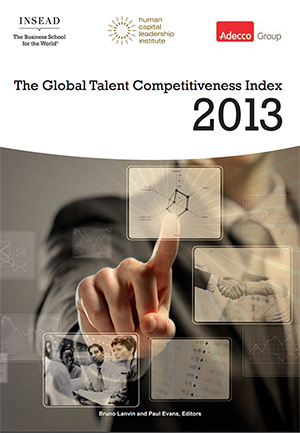The GTCI Team
Paul A.L. Evans
Emeritus Professor of Organisational Behaviour and Emeritus Shell Chair of Human Resources and Organisational Development, INSEAD

Academic Director of GTCI and Affiliate Professor of Strategy, INSEAD
Felipe Monteiro is the Academic Director of GTCI, Senior Affiliate Professor of Strategy at INSEAD and a Senior Fellow of the Mack Institute for Innovation Management at the Wharton School. Before INSEAD, he was a standing faculty member at The Wharton School, University of Pennsylvania and a Fellow, and an award-winning teacher, at the London School of Economics and Political Science (LSE). He has also worked as a Senior Researcher at the Harvard Business School’s Latin American Research.
His research on global open innovation, the role of boundary spanners and sustainability-oriented innovation was published in top journals (e.g. Academy of Management Journal, Organization Science, Strategic Management Journal, Harvard Business Review, MIT Sloan Management Review). Professor Monteiro received important awards from the Academy of Management, the Academy of International Business and the Strategic Management Society. He wrote several award winning cases and is #12 in The Case Centre’s ranking of bestselling case authors.
Emeritus Professor of Organisational Behaviour and Emeritus Shell Chair of Human Resources and Organisational Development, INSEAD

Emeritus Professor of Organisational Behaviour and Emeritus Shell Chair of Human Resources and Organisational Development, INSEAD
Paul Evans is the Shell Chaired Professor of Human Resources and Organisational Development, Emeritus at INSEAD. Co-founder and former academic director of the Global Talent Competitiveness Index (GTCI), his research focuses on leadership and talent development, building on his pioneering research into leadership transitions and executive lifestyles. His work also centres on international human resource management where his most recent book is The Global Challenge: Managing People across Borders (2023); he received awards as one of the most influential people in that field, and he has been advisor to more than 200 multinational corporations. He was titular professor at the European Institute for Advanced Studies in Management in Brussels in recognition for his work in building scholarly networks in HR in Europe He has a PhD in Management and Organizational Psychology from MIT, an MBA from INSEAD, and he is a graduate in law from Cambridge University.

Director and CEO, Portulans Institute
Rafael Escalona Reynoso serves as the CEO of Portulans Institute. In this role, he leads the production of the Network Readiness Index (NRI) and the Global Talent and Competitiveness Index (GTCI), both of which he serves as co-editor. He also coordinates numerous high-profile projects, including the Portulans Democracy Lab and the AI Power Balance project with NYU in addition to various regional projects focused on technology, innovation, and human capital development.
Earlier in his career, Rafael was a member of the Trade and Foreign Investment Advisory Board under the President of Mexico and served as a Science and Technology Policy Advisor to the Senate of Mexico. In these capacities, he delved deep into the economic implications of international regulations related to fostering innovation and the cultivation of emerging technologies. His comprehensive analyses have significantly influenced the creation and implementation of pivotal science and technology policies in Mexico.

Head of Research, Portulans Institute
Shailja Bang Shah is a Head Researcher with experience in leading and managing Composite Index projects. At Portulans Institute, she is responsible for project management, research, policy analysis, and communications support for an upcoming composite index in association with VinUniversity. She is also the Co-Author and Lead Researcher for the Emerging Markets Economic Growth and ESG (EMI D-ESG) Country Ranking, a composite index published and created by the Emerging Markets Institute (EMI) at Cornell SC Johnson College of Business. Previously, she has worked with J.P. Morgan in geopolitical and macro-economic research, where she covered market-moving events like the implications of the COVID-19 pandemic, the consequences of unconventional monetary policy, outlook for the 2020 US elections, and the evolving U.S.-China trade tensions. She is a qualified Chartered Accountant (India) with a Bachelor’s in Commerce from the Narsee Monjee College of Commerce and Economics (University of Mumbai). She is partner at Imperium Partners, a research firm which specializes in Thematic Research.

Project Manager of GTCI and Research Assistant, Portulans Institute
Elizabeth Redmond is a Project Manager and Research Assistant at Portulans Institute. She holds a Master of Science in Regional Science and a Bachelor of Science in Urban and Regional Studies from Cornell University. Her work focuses on hybrid warfare, critical infrastructure security, strategic foresight analysis, and national security policy.
During her academic career, Elizabeth conducted research on semiconductor supply chain security, Arctic security dynamics, and military drone policy as a Fellow with the Tech Policy Institute. She contributed to policy reports for the U.S. government and NATO.
At Portulans Institute she manages day-to-day coordination between Portulans and INSEAD for the Global Talent Competitiveness Index (GTCI). She also supports research on societal resilience by conducting literature reviews and helping to develop models for the GTCI 2025 report.

Rajat Kumar is a digital transformation and innovation management specialist with experience on policy research, digital rights, and sustainable development initiatives across South Asia, Africa and the UK. Rajat specializes in developing and implementing digital transformation strategies, managing innovation programs, and conducting policy research. He is currently a Policy Researcher at the Portulans Institute.
As an independent consultant, he has lead strategic projects catalyzing digital innovation ecosystems across the Global South, collaborating with international organizations, government bodies, and civil society organizations. His work involves analyzing policy frameworks, assessing digital readiness, and designing intervention strategies for sustainable digital transformation.
Rajat is pursuing advanced studies in Management, building on his previous degrees in Psychology, Sustainable Development Practice and Innovation Management. Prior to his current role, he led digital transformation at the Friedrich Naumann Foundation, where he led the organization’s technology portfolio across South Asia and as an innovation ecosystem specialist for the International Telecommunications Union.

Abdellah Bouhamidi is an expert in program and policy evaluation with extensive experience in strategy and analytics across government and private sectors. As a consultant with Portulans Institute, he specializes in calculating and analyzing composite indicators, including the Network Readiness Index (NRI), Global Innovation Index (GII), and Future Readiness Index (FRI).
He also leads and delivers advanced analytics projects for government initiatives, providing evidence-informed advice to senior leadership on policy issues impacting communities. His work aids in the administration, management, evaluation, and planning of diverse government programs.

Jaime Lagüera González is a research statistician at the European Commission, Joint Research Centre (JRC). Before joining the Competence Centre on Composite Indicators and Scoreboards (COIN), he worked at the European Central Bank (ECB) and in other areas of the JRC, where he collaborated on topics like data quality, data visualisation and text mining analysis.
Jaime holds a Bachelor degree in Economics as well as two Master degrees, one in Econometrics and Operation Research and the other in Big Data and Business Analytics.
His main research interest is the use of non-conventional data related to different topics like economics and composite indicators.

Anastasis Katsinis works at the Competence Centre on Composite Indicators and Scoreboards (COIN) at the Joint Research Centre (JRC) of the European Commission.
He supports the Small and Medium Enterprises (SMEs) portfolio as a quantitative policy analyst by developing analytical tools that assist in policy-making. His background in Geographic Information Systems (GIS) enables the spatial interpretation of socioeconomic phenomena.
Prior to joining the JRC, he worked for the Greek Public Administration in several posts (Ministry of Development, National Cadastre Agency, and Local Authorities) as well as in the private sector as a consultant.
He holds two Master degrees, one in Geoinformatics and the other in Spatial Planning and EU Policies, and a Bachelor degree in Engineering. Currently, he is a PhD candidate in the field of Economic and Electoral Geography.

Panagiotis Ravanos is a policy analyst at the Competence Centre on Composite Indicators and Scoreboards (COIN) of the European Commission’s Joint Research Centre (JRC). His research is related to performance evaluation, efficiency measurement, Data Envelopment Analysis (DEA), and the methodology and empirical applications of DEA to the development of composite indicators.
He holds a PhD in Economics from the Department of Economics at the University of Macedonia, Thessaloniki, Greece. He has received his BA and MA in Economics from the Department of Economics at the University of Macedonia, Thessaloniki, Greece. Prior to joining COIN, Panagiotis had worked in the Centre for the development of Vocational Education and Training (CEDEFOP), as a teaching and research assistant in the University of Macedonia, and as a research analyst in the private sector.
His other research interests include the effect of decision maker preferences in performance assessment, the analysis of judicial performance, as well as aspects related to employment precariousness and skills shortages.

Michaela Saisana is Head of the Science for Modelling, Monitoring and Evaluation Unit at the European Commission’s Joint Research Centre in Italy.
She has been working in the JRC since 1998, where she obtained a prize as “best young scientist of the year” in 2004 and together with her team the “JRC policy impact award” for the Social Scoreboard of the European Pillar of Social Rights in 2018.
Scientist and engineer with specialization on process optimization and spatial statistics, she is actively involved in promoting a sound development and responsible use of performance monitoring tools. These monitoring tools feed into EU policy formulation and legislation in a wide range of fields from social rights and fairness to innovation and competitiveness, from enterprises and firms to state aid, from employment to culture and creativity, from cohesion to sustainable development.
She collaborates, by auditing performance indices, with over 150 international organizations and world-class universities, including the United Nations, Transparency International, Oxfam, the World Economic Forum, INSEAD, the World Intellectual Property Organization, Yale University, Columbia University, and Harvard University.

Professor of Strategy, INSEAD
Javier Gimeno is Professor of Strategy at INSEAD where he holds the Aon Dirk Verbeek Chair of International Risk and Strategic Management. He earned a PhD in strategic management from Purdue University and has taught at INSEAD since 2001, serving most recently as Dean of Faculty. His research on strategy and entrepreneurship has been published in top academic journals and earned prestigious awards from academic and practice organizations. An influential leader in his academic discipline, he served as President of the Strategic Management Society—the global association of strategy scholars, practitioners, and consultants—and was recently elected by his peers as Vice-President-Elect of the Academy of Management, the world’s largest management professional association.

Professor of Economics, INSEAD
Maria Guadalupe is a Professor of Economics at INSEAD where she holds the Mark Pathy’89D Chair in Organizational Economics and Productivity and is a Co-Director of the James M. and Cathleen D. Stone Center for the Study of Wealth Inequality. She is currently also Program Director of the CEPR Organizational Economics group, Department Editor in Strategy at Management Science and a member of the Spanish Productivity board and of the French Expert Group on minimum wages. Her research explores different dimensions of organizational choices by firms and their impact on performance.

Associate Professor of Economics, INSEAD
Alexandra Roulet is an Associate Professor of Economics at INSEAD and the current recipient of the Mathieu Guillemin MBA’97J Fellowship in Business and Society. She is also a CEPR Research Fellow and co-directs the CEPR Research Policy Network on “Growth, Innovation and Social Model in Europe”.
Alexandra’s research focuses on labour economics and has been published in leading academic journals such as the American Economic Review, the Quarterly Journal of Economics or the Journal of Public Economics. She is the co-winner of the 2017 Upjohn Institute Dissertation Award. In 2024 she was named the best French economist under 40 by Le Cercle des économistes and the newspaper Le Monde.
Alexandra worked as economic advisor to President Macron and Prime Minister Borne from June 2022 to September 2023. She is currently a member of the French Council of Economic Analysis.
She graduated from the Ecole Normale Supérieure in Paris, and earned her PhD in Economics at Harvard University in 2017.

Assistant Professor of Organisational Behaviour, INSEAD
Winnie Jiang is an Assistant Professor of Organisational Behaviour at INSEAD. Her research topics include the dynamics of meaning-making at work, work as a calling, career mobility and transitions, and personal and professional development.
Winnie’s research centers on how individuals find and sustain meaning in their work—particularly amid disruption, transition, and technological change. Her current research investigates how artificial intelligence (AI) can be integrated into individuals’ work lives in ways that cultivate, rather than erode, meaningfulness—and how organizations can design structures and practices to support this process. Across qualitative and quantitative studies, she explores how humans and intelligent technologies can co-develop systems of work that preserve human agency, dignity, and purpose.
Winnie’s broader research spans three interrelated streams: how individuals make meaning of and about their work; how they navigate mobility and achieve self-transformation through their careers; and how meaning can be constructed and sustained in the age of AI and digital transformation.
| Cookie | Duration | Description |
|---|---|---|
| cookielawinfo-checkbox-analytics | 11 months | This cookie is set by GDPR Cookie Consent plugin. The cookie is used to store the user consent for the cookies in the category "Analytics". |
| cookielawinfo-checkbox-necessary | 11 months | This cookie is set by GDPR Cookie Consent plugin. The cookies is used to store the user consent for the cookies in the category "Necessary". |
| viewed_cookie_policy | 11 months | The cookie is set by the GDPR Cookie Consent plugin and is used to store whether or not user has consented to the use of cookies. It does not store any personal data. |
| Cookie | Duration | Description |
|---|---|---|
| _ga | 2 years | Used to distinguish users. |
| _ga_LRHX86MMFL | 2 years | Used to persist session state. |

